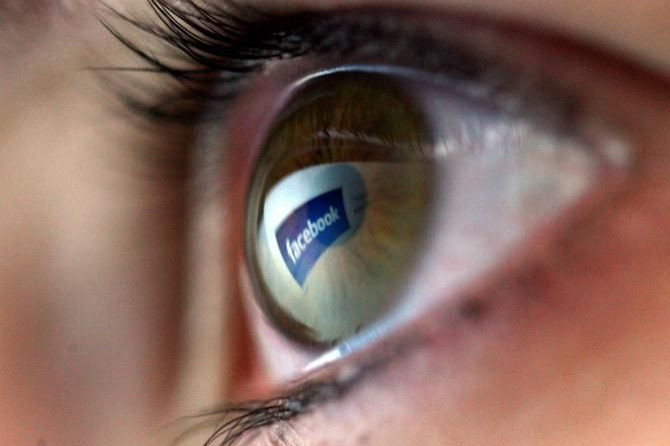Facebook (FB) Photo Sync Requires Separate App Called Moments, Starting Jan. 2016

Facebook wants its users to download yet another mobile app. Last year, if Facebook users wanted to keep messaging, they had to download Messenger. This year, it's photo-syncing app Moments.
Since 2012, the social network has offered automatic photo syncing from a smartphone user's camera roll to the main Facebook mobile app. It requires users to opt in to get the feature. Once users enable it, Facebook's main mobile app syncs the last 20 photos and then every photo taken from there onto a private Facebook album, according to the help page.
Starting Jan. 10, Facebook users must download Moments, a photo-storing and -sharing app, if they want to keep that feature. All users who have already have syncing enabled can now see a notification on the Facebook mobile app that reads, "Photo syncing is ending on Jan. 10. Learn more." Clicking on that notification brings users to a page that announces the move to Facebook.
The page reads, "On Jan. 10, your backed-up photos will move to Moments, and photo syncing on Facebook will end. Moments is a new app from Facebook that lets you organize and privately share photos."
The update is not unlike Facebook's demand in 2014 for users to download Messenger if they wished to continue messaging other users via Facebook. The move comes after Facebook shut down its Creative Lab, an experimental division for creating standalone apps, and removed three products from app stores. Yet, clearly, the social network is still pushing an app ecosystem, as in not having one app with every feature. Perhaps it's become better at prioritizing them.
It is unclear how many of Facebook's 1.385 billion monthly active mobile users have photo sync enabled. Facebook declined to provide a comment on the reason behind the change. The company did share that users can download a zip file of their synced photos on their computer or delete them if they do not want to download Moments.
"Starting this week, we are beginning to phase out Facebook's photo syncing feature," a Facebook spokesperson told International Business Times. "The feature was launched in 2012 when people took photos on their phones, but still posted primarily from computers."
Now, Facebook is betting Moments could prosper as a standalone photo-storage app, where images are saved on a cloud and not taking up storage space on a smartphone. Moments is not unlike the Google Photos app, which Google updated Thursday with a shared album feature and provides unlimited space, and Apple's iCloud, which has pricing tiers based on storage capacity. Yet, not every tech giant has seen success in such an endeavor. Earlier this week, Dropbox shut down its photo-storing app Carousel.
What Is Moments?
Moments is Facebook's latest push into providing more user experiences for photo storing and sharing, what has been a key element of the social network since its founding in 2004. Moments, released in June, lets users create albums with friends. These album can be updated continuously or focused on one event. All members can view the synced photos and choose which ones to download and publicly share on Facebook or Instagram.
"Syncing photos with the Moments app is a private way to give photos to friends and get the photos you didn’t take. Now, you and your friends have all the photos you took together," Facebook wrote in the blog post announcement.
Moments requires Facebook users to have Messenger, the network's standalone messaging app that boasts 800 million monthly active users compared to Facebook’s 1.55 billion. If a Facebook user is added to an album on Moments but doesn't yet have the app, Facebook will notify him or her via Messenger.
App 'Ecosystem'
These restrictions follow Facebook's strategy for building several apps, not just one all-encompassing app, and unbundling features from the main product. Facebook CEO Mark Zuckerberg said in July on the company's second-quarter earnings report that his team has made major acquisitions to support an "ecosystem" as they focus on the "next generation of apps."
Simultaneously Facebook also experiments with one-off apps and later builds them into its main products. Indeed, features of Facebook’s news-reading app Paper are evident in the Instant Article initiative. Michael Reckhow, the product manager for Paper, now works on Instant Articles, too.
This week, Facebook removed Slingshot, Rooms and Riff -- all products of Facebook Creative Labs -- from the app store. Facebook told CNET "elements" of those three apps had been incorporated into Facebook for iOS and Android.
Yet Paper and other standalone apps are still pushing forward. The company's main products are Facebook, WhatsApp, Messenger and Instagram. There also are Groups and Moments. Layout and Hyperlapse are apps built for Instagram.
Facebook is betting that users will opt for more photo-storing apps, which can be one of the most space-consuming features for a smartphone.
© Copyright IBTimes 2025. All rights reserved.





















